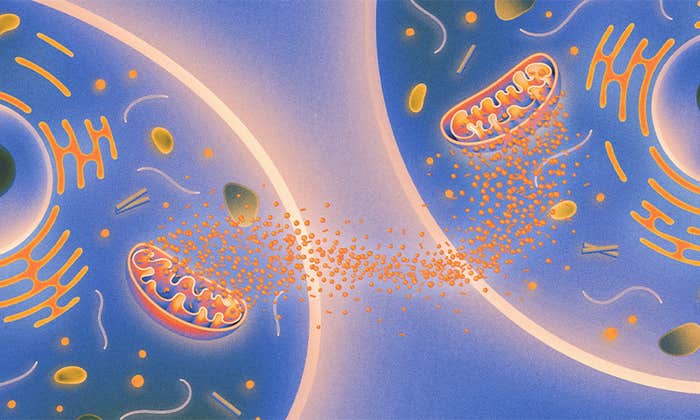Sperm are the cheetahs of the microscopic world: Made of little more than molecular muscle and batteries, tipped with a payload of genetic information, they are optimized for speed. But to orient themselves before their epic, seven-inch sprint (it’s more impressive if you’re less than one three-thousandth that size), they first need to sniff out the location of the egg—and, it turns out, the analogy to the sense of smell may be particularly apt.
We’ve known for years that something in the secretions of the female reproductive tract attracts sperm: Any biologist with easy access to said secretions, semen, and a Petri dish can see that. Making the connection between the soup of candidate molecules floating around in there and the sperm’s journey to the egg is a bit trickier, but lately, scientists have discovered that sperm are equipped with odor receptors usually found in the nose. In a study published last week, researchers identified two odor molecules present in the fluids near the egg and in the vagina in general. And those chemicals trigger some of the receptors in sperm, causing a chemical reaction of the sort that gets sperm cells’ motors humming.
The researchers first identified 40 scent molecules present in the fluids of 17 women—molecules that, if you were to sniff them (i.e., let them activate the odor receptors in your nose), would range in smell from vanilla-like to bell peppery to sulfurish. They then dabbed them one by one on lab-grown cells engineered to carry the receptors. They found that two (a urine-y scent and a caramel-like one) caused the cells to release calcium, which makes sperm whip their tails. They then applied the molecules to live sperm, and found that while the intact fluids got the sperm wiggling much more reliably, the odors got a large fraction of them swimming as well. The researchers say that this is a sign that the molecules may be involved in attracting sperm egg-wards.
Should further work bear out the idea that these scents are part of sperm’s chemical compass, they will still probably be far from the only molecules involved. The hormone progesterone, for instance, is known to be important, and there are numerous other candidates to try out. But it’s intriguing to see that the exquisite sensitivity of odor receptors, put to such good use in our noses, is deployed elsewhere in the body, to serve other purposes—especially on a journey of such importance.
Veronique Greenwood is a former staff writer at DISCOVER Magazine. Her work has appeared in Scientific American, Popular Science, and the sites of Time, The Atlantic, and The New Yorker. Follow her on Twitter here.



















